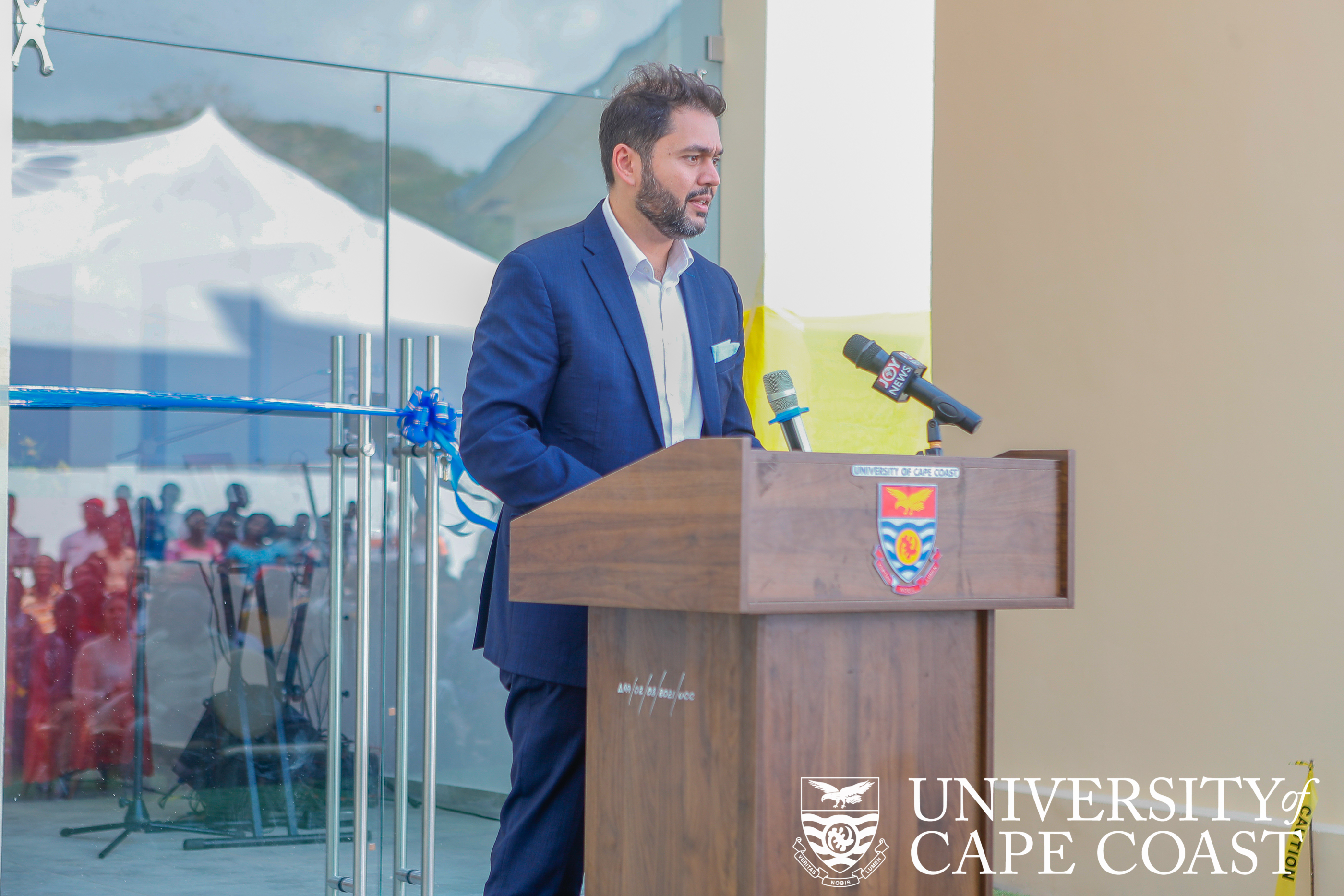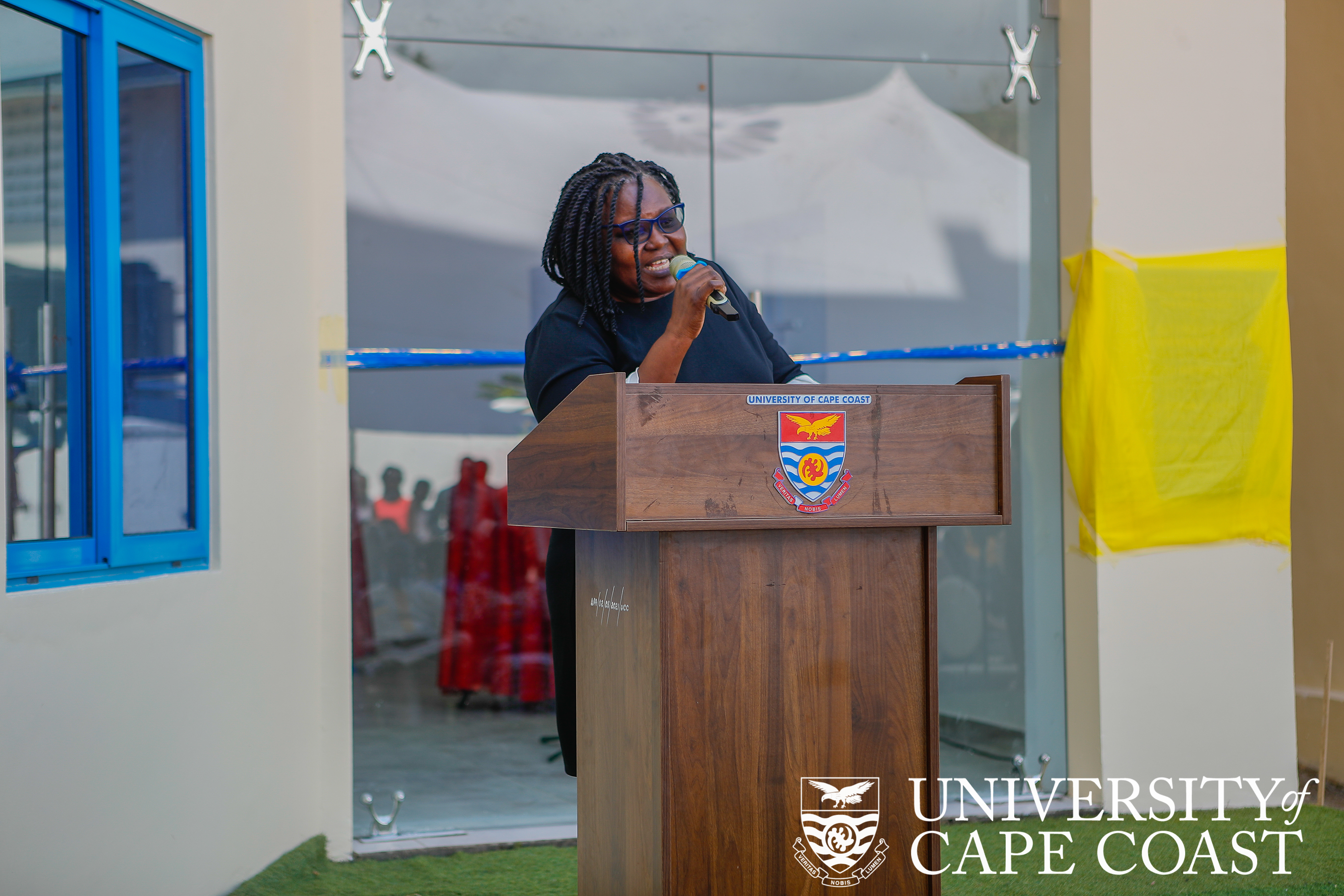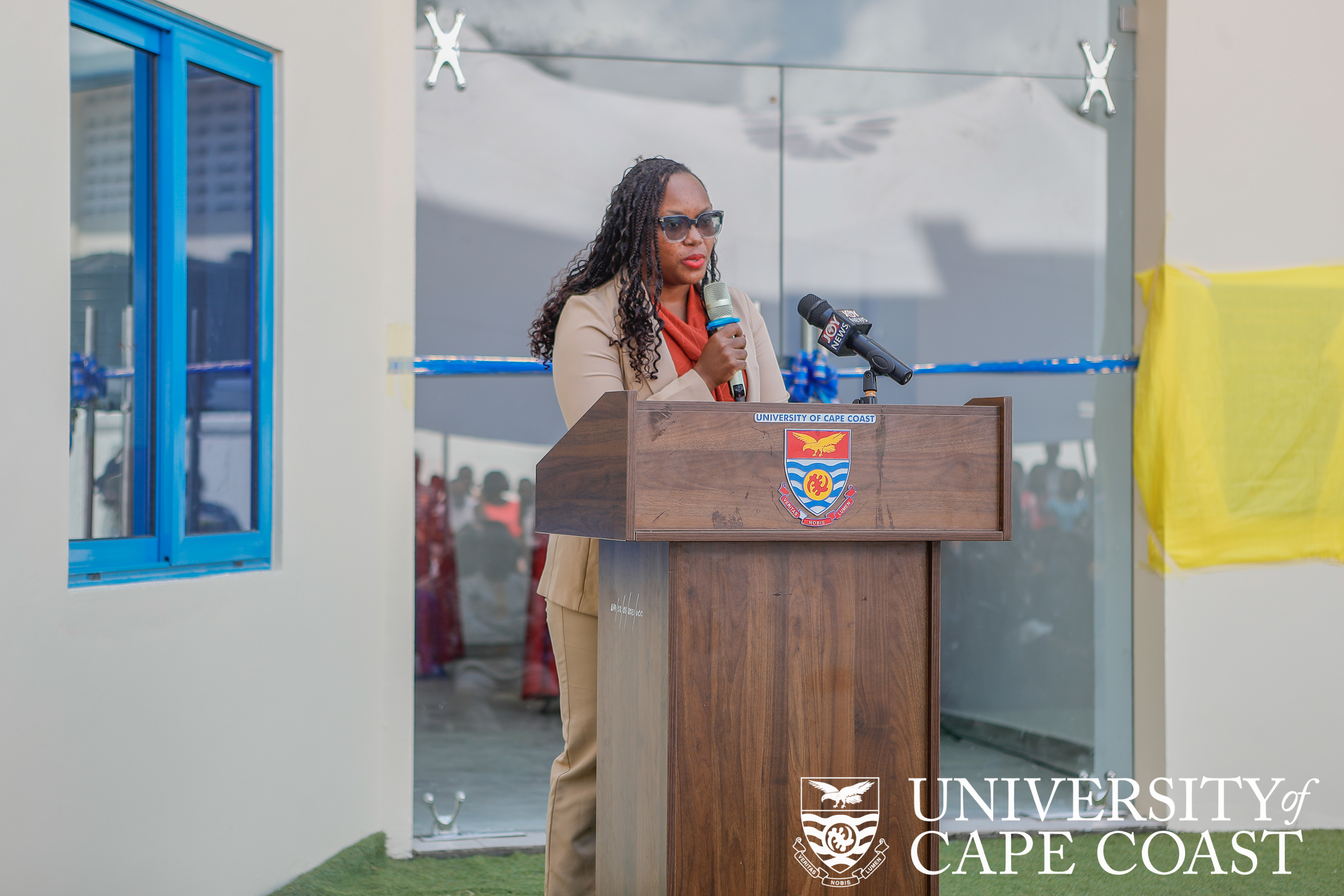The completed first phase of a 13 million Cedis multi-purpose building furnished with state-of-the-art facilities to accommodate the Centre for Coastal Management-Africa Centre of Excellence in Coastal Resilience (ACECoR), University of Cape Coast (UCC) has been inaugurated.
Situated at the south campus of UCC and overlooking the Atlantic Ocean, the office building, constructed within 18 months, is equipped with offices, research commons, a library, a communication room, reception, washrooms, a cafeteria, lecture rooms, a kitchenette, a multipurpose lab, amongst others.
The project, financed by the World Bank, which was handled by FAS Consult as consultant with the Directorate of Physical Development and Estate Management (DPDEM-UCC) was constructed by Antarctic Limited.
At a very colourful ceremony to formally inaugurate the facility, the Vice-Chancellor, Prof. Johnson Nyarko Boampong, expressed gratitude to the strategic partners of CCM-ACECoR for their support towards the construction of the project.
Prof. Johnson Nyarko Boampong
He said the management of the University strategically sited the building close to the Atlantic Ocean and urged the leadership of CCM-ACECoR to make a positive impact on the communities close to the project.
Prof. Boampong praised DPDEM and the constructors for their work and urged stakeholders to take care of the edifice to prolong its lifespan.
The Municipal Chief Executive for Cape Coast, Mr. Ernest Arthur, who represented the Central Regional minister emphasized the timely nature of the building's commissioning, coinciding with ongoing research and conservation efforts to understand and protect Ghana's marine ecosystems.
He underscored the importance of Blue Economy investments in "promoting sustainable use of marine resources for economic growth, improved livelihoods, and employment opportunities."
Mr. Arthur also identified untapped investment prospects in the fisheries and marine sector, particularly in "the development of land sites, cold storage facilities, fish feed production, and large-scale export of salt for industrial purposes."
Prof Aheto (right) with the VC-UCC (3rd from right) and Pro VC-UCC (in UCC fabric) with some key partners of CCM-ACECoR
The commissioning of the ACECoR building stands as a testament to the University's commitment to advancing research and innovation in coastal resilience. With its world-class facilities and ongoing collaborations with international partners, ACECoR is poised to become a beacon of excellence in Africa and contribute significantly to the sustainable development of coastal regions.
An Environmental Specialist at the World Bank, Mr. Sajid Anwar, addressing the ceremony, hailed ACECoR for its accomplishments not only in the service of its students but also in the area of partnerships and pioneering innovative research and new approaches for coastal resilience.
“ACECoR has developed a partnership with Japan, the University of Tokyo to take forward innovative research on integrated settlement management. They have partnered with the Netherlands to take forward innovative approaches to nature-based solutions across West Africa,” he added.
According to him, the World Bank “sees ACECoR as a home for knowledge on coastal resilience for the future because what ACECoR is doing is the definition of sustainability: investing in people, youth to be the scientists and leaders of tomorrow.”
Mr. Anwar admitted that “As we look into the future and beyond coastal resilience and recognise the growing importance of developing sustainable and inclusive blue economies, this is an area where I have to admit that the great minds at ACECoR have been a step ahead of the World Bank.”
“This suggests the many reasons why through the West African Coastal Areas Management Programme (WACA) the World Bank is happy to support ACECoR with financing for the next five years as part of the WACA resilience investment project,” he said.
In a remark, a Senior Education Specialist of the World Bank, Madam Eunice Ackwerh, highlighted the impact of the $60 million credit facilitated by the Association of African Universities (AAU), which had benefited ACECoR as one of Ghana's nine Centres of Excellence.
She emphasized that the ACECoR project plays a pivotal role in enhancing the quality, quantity, and development of postgraduate education and research. She said that one of ACECoR’s key achievements includes collaborating with the Department of Fisheries and Aquatic Sciences of the University of Cape Coast and local Non-Governmental Organisations (NGOs)
She reiterated the resolve of the World Bank to support ACECoR’s efforts in establishing internationally recognized Centres of Excellence in Africa.
The Project Manager of the AAU, Dr. Sylvia Mkandawire, commended ACECoR for putting up such a magnificent edifice within a year.
“The AAU has been actively working with various universities, and ACECoR’s building is a testament to the organization’s dedication to fostering academic excellence across the African continent,” she explained.
The Director of the CCM-ACECoR, Prof. Denis Aheto, expressed gratitude to the management of the University for the massive support.
He stated that over the past years, the major challenge of the CCM had been the lack of office space.
The Vice-Chancellor with the strategic partners of CCM-ACECoR, government officials and some key members of the University community later cut the tape to signal the official commissioning of the facility. A plaque was also unveiled.
Source: Documentation and Information Section-UCC






